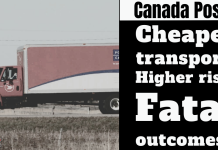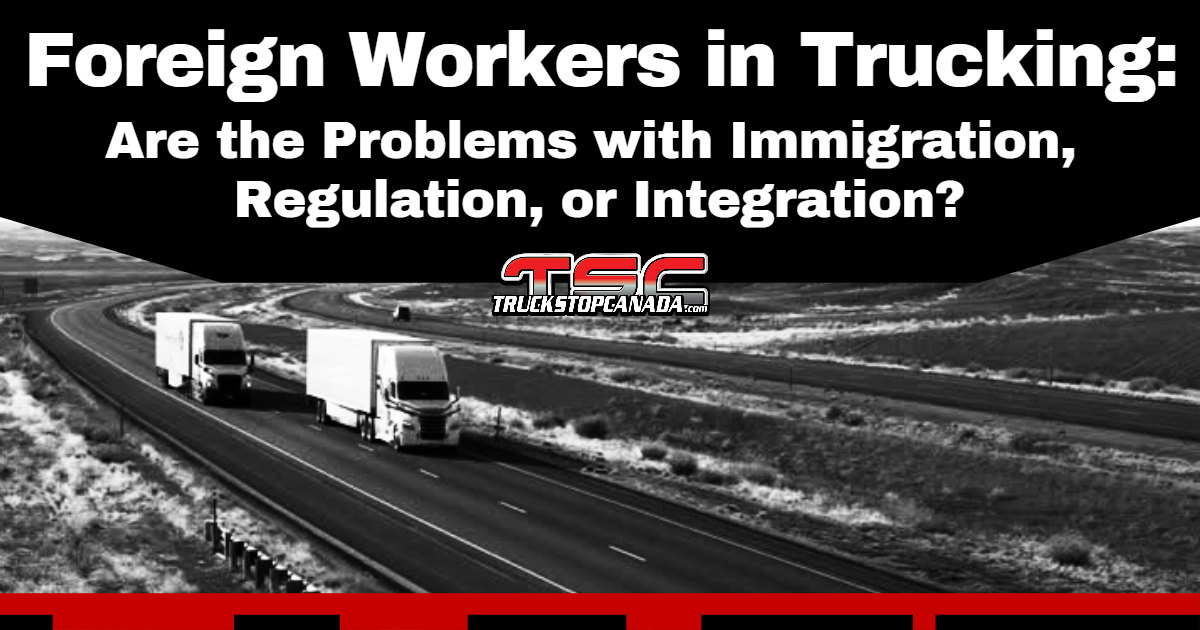In a significant development for the Canadian trucking industry, the Bloc Québécois has succeeded in forcing the federal government to take a closer look at the controversial practice known as “cheap labor trucking.”
Xavier Barsalou-Duval, Bloc MP for Pierre-Boucher—Les Patriotes—Verchères and vice-chair of the House of Commons Standing Committee on Transport, Infrastructure and Communities (TRAN), secured unanimous support for a motion that will launch a parliamentary study this fall. The inquiry will include at least six sessions where federal ministers, industry stakeholders, unions, and truck drivers themselves will testify.
At the center of the debate is the widespread phenomenon known as “Driver Inc.” or so-called “ghost drivers.” Under this model, truck drivers are encouraged—or pressured—to incorporate as independent contractors, even though they work as employees.
By doing so, companies avoid payroll taxes, social contributions, and certain safety responsibilities, while drivers lose access to basic labor protections. For years, unions, associations, and industry observers have denounced the system as a form of exploitation that undermines both worker rights and road safety.

Barsalou-Duval argues that the issue is a ticking time bomb. In a letter to Transport Minister Steven MacKinnon, he described “Driver Inc.” as a nationwide scourge particularly prevalent in Ontario and Quebec. According to him, the practice not only threatens fair competition and economic integrity but also contributes directly to road fatalities.
Recent figures from Quebec’s automobile insurance board (SAAQ) show a 35% spike in heavy truck-related deaths between 2023 and 2024. Several fatal accidents in late August underscored the human cost of regulatory loopholes.
The trucking sector has already mobilized against this practice. Earlier this year, the Quebec Trucking Association (ACQ), the Quebec Association of Towing Professionals (APDQ), and the Teamsters union issued a joint call for urgent government action. They warned that law-abiding drivers are being pushed out of the industry by unfair subcontracting arrangements that put downward pressure on wages and erode safety standards. According to industry advocates, the issue goes far beyond lost tax revenue: it threatens the stability of Canada’s entire supply chain.
As part of his proposals, Barsalou-Duval has urged Ottawa to tighten rules for temporary foreign workers. He is calling for restrictions that would prevent foreign drivers from registering as incorporated contractors, insisting they remain salaried employees instead.
He draws comparisons to other strategic sectors, such as civil aviation and maritime piloting, where citizenship or strict employment rules are enforced to ensure public safety. This approach, he argues, would protect vulnerable workers from exploitation while reinforcing oversight of the trucking industry.
As Barsalou-Duval stated, political courage is urgently needed—not only to protect truck drivers but also to restore fairness, safety, and credibility in Canada’s trucking industry.

















